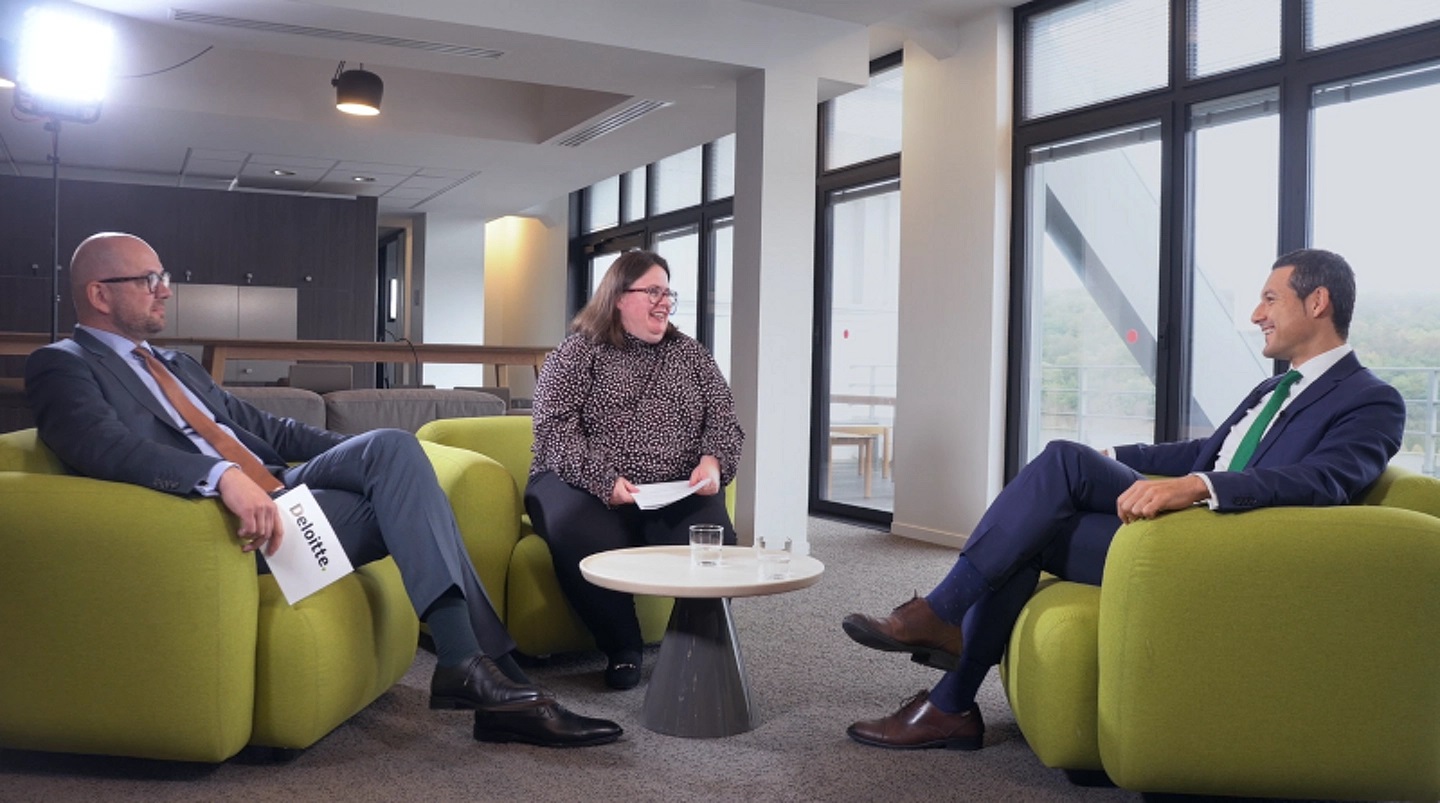While the OECD/G20 Inclusive Framework on BEPS is continuing its work on improving tax certainty in international matters, the means to resolve, or effectively prevent, double taxation are still as important as ever. Joint audits are one of the relatively new tools at the disposal of tax authorities to pre-empt tax disputes. They can provide a way to prevent double taxation that otherwise would have to be resolved through mutual agreement procedures (MAPs).
While MAPs are an effective and proven approach to provide relief from double taxation, limitations become apparent when they are the only possible path. There is pressure on competent authorities to work through a high number of usually complex cases and to find common ground with their counterparts, often within a finite timeframe. The use of joint audits as a way to prevent double taxation in the first place may provide an alternative tool for dispute prevention.
It is not always complex and exceptional transactions that are the most discussed in tax audits. Intercompany services, including what is often generally categorised as management service charges, are a topic for almost all multinational enterprises and they are frequently subject to challenges in tax audits globally. Among the points on which views can differ significantly is whether the ‘benefit test’ supports the service charges on the merits and in the amounts.
It is reasonable that – as with all other types of intercompany transactions – a corresponding value for what is being charged should be demonstrated for intercompany services. However, it is only for services that the OECD Transfer Pricing Guidelines for Multinational Enterprises and Tax Administrations specifies the need for a benefit test. Interpretations by tax authorities of what is needed to satisfy the benefit test can differ widely, making it a particularly challenging part of transfer pricing documentation and tax audits.
Deloitte raised these and other points in relation to audits and dispute prevention and resolution in an interview with Manuel de los Santos, the head of the transfer pricing unit at the OECD’s Centre for Tax Policy and Administration.
Interview with Manuel de los Santos
Various jurisdictions are increasingly focusing on tax governance and compliance management systems as an indicator to determine the intensity and scope of tax audits, the expansiveness of documentation requests, and potential reliefs. Deloitte asked about the OECD’s view on this topic and whether it might be covered in further OECD guidance.
“We see those types of initiatives very positively in the sense that they are going in the right direction of reducing the compliance burdens when it comes to implementing the current system,” Manuel de los Santos said. “I don’t think that we are going to be publishing general guidance on that topic, but the topic is popping up in almost every project we are undertaking. If we go back to the example of amount B, for instance, where we had – in the consultation document in December [2022] – a relatively long list of documentation that MNEs would need to produce for amount B, we received really strong reactions from commentators, saying that ‘that’s just too much, it doesn’t help us, it doesn’t provide any simplification’. Therefore, you can see in the next version of the consultation document how we have rethought that process.

A video of the full interview is on the Deloitte website
“Tax administrations probably already have the information they need so therefore we don’t need to add an additional layer of compliance for the context of amount B. That’s where we see that conversation heading, towards a need to simplify the implementation of the rules, and that extends also to compliance pardons and the administrative side of things for tax administrations. So even if I don’t see having general guidance on that in the near future, I’m pretty sure that this is going to percolate all over the place when it comes to new guidance.”
Intercompany services continue to be a common topic in tax audits – perhaps out of proportion to their transfer pricing complexity (or lack thereof). Tax authorities often focus on their interpretation of the benefit test. Deloitte asked whether any further guidance can be expected from the OECD on the benefit test, also pointing out that it is striking that the benefit test exists for services but not for any other form of intercompany transaction.
“I think the answer is yes, because if we go back to, I think it was 2018, when we published a consultation document for scoping out Chapter VII [of the OECD Transfer Pricing Guidelines for Multinational Enterprises and Tax Administrations], there was a list of items we thought back then that we should be revisiting without prejudice,” Manuel de los Santos said. “Whether or not we were going to conclude something different, at least we would need to take time to think through those issues. I think the benefit test was included in that list.
“Our plan is to pick up that work in the next months, again taking advantage of the work on pillar one winding down. But I realise that even if it’s not a super-fancy topic on transfer pricing – i.e., intra-group services – I think it’s one that is important to provide tax certainty and it should be one of those things that is relatively easy to address in order to achieve that goal. And if you think broadly in terms of the inclusive framework membership, for instance, there is significant demand from low-capacity jurisdictions for a fix to the complexities that are related, to some extent, to the benefit test. So it’s in that space where we should expect a bit more work from the OECD.
“With respect to the benefit test, I like to think about that more as a label, because if you think about other approaches – for instance, financial guarantees in the financial transactions sector, or the inclusion of the perspective of the borrower that we articulated in Chapter X – they all articulate that idea that the service needs to provide a benefit to the receiver. It has to have an economic impact that is positive so a third party would be willing to pay for that in a comparable situation. So even if we don’t label those things as benefit tests in other parts of the guidelines, I think the concept is relatively similar. But it’s a good point, I can see that.”
Joint audits are becoming a more common tool to coordinate tax audit activities and various countries (such as Germany) are opening this route for initiation by businesses as well. Deloitte asked Manuel de los Santos whether the OECD is considering further joint audit processes and suggested that the potential for mandatory resolution after a joint audit might be a route to reduce MAP inventories.
We are fostering guidance internally across the membership to increase the uptake of joint audits
“I think the last guidance we published on joint audits was in 2019,” he said. “That report was pretty useful for setting the grounds for jurisdictions regarding the legal bases and it provided some advice for an effective resolution of joint audits.
“From the perspective of the OECD at the moment, what we are doing is fostering that guidance internally across the membership to increase the uptake of joint audits, because we see that as a very good tool to reduce, for instance, inventory MAP cases. You mentioned Germany, that has a good pilot with Italy in the context of joint audits, and there are other examples, like the Netherlands, that [have had a] good experience with joint audits.
“Picking up on the report of 2019, what we are trying to do is to have those jurisdictions with larger experience in applying joint audits or using joint audits to actually do some sort of capacity building towards other jurisdictions that might be a bit more sceptical in the beginning, but as soon as they see the benefits, it’s an easy win for jurisdictions and even for taxpayers in that context.”
Deloitte asked Manuel de los Santos’s opinion on whether the introduction of mandatory resolution at the end of a joint audit process could be helpful to reduce the overall MAP inventory.
“I think from the OECD perspective, that would be ideal,” he said. “We know that it’s always a challenge when we try to speak about mandatory resolution in those types of situations. Action 14 [of the OECD/G20 BEPS project] was a good starting point in that discussion, with the arbitration clause. Probably, the MLC [The Multilateral Convention to Implement Amount A of Pillar One] is also a step in the right direction, to identify situations where we actually should be able to get to that mandatory arbitration, again recognising that, for instance, from the perspective of low-capacity jurisdictions, it’s harder to sell. But that’s probably an indication of where [we] want to head in the future.”
Avoiding and resolving tax disputes remains a key priority for businesses. Deloitte asked what can be expected in this area in the form of further work by the OECD; for example, in relation to multilateral MAPs.
“That’s a good question,” Manuel de los Santos said. “That’s also where the FTA [Forum on Tax Administration] MAP Forum is focusing its efforts at the moment. I think it was in February [2023], they published the manual on multilateral APAs [advance pricing agreements] and multilateral MAPs, and we are now trying to foster the application of that manual across the membership.
“The manual is useful in terms of addressing questions like the legal bases, the implications in terms of procedure; e.g., do you use Article 25.1 or Article 25.3 of the Model Tax Convention. There is a lot of value in that, and jurisdictions are just now getting their heads around what the benefits are and how application can be made as broad as possible."
Simplification and clarification on the horizon for the OECD
The OECD/G20 Inclusive Framework on BEPS is intent on simplifying and clarifying international taxation in the area of tax dispute prevention, in line with its work in other areas.
Notably, we can look forward to further guidance on the benefit test for intercompany services, which is among the most common points of transfer pricing controversy. In addition, work is being undertaken with respect to MAPs and, in particular, multilateral MAPs, and the ‘behind the scenes’ efforts by some of the inclusive framework’s membership to foster the use of joint audits makes it possible that more countries will consider their use.
The first article in the series, in which Manuel de los Santos shed light on the upcoming work of the OECD on global mobility and hybrid working models, is available here.
The second article covered the future of the OECD’s 2010 Report on the Attribution of Profits to Permanent Establishments, and a potential update of the authorised OECD approach.
Deloitte refers to one or more of Deloitte Touche Tohmatsu Limited (DTTL), its global network of member firms, and their related entities (collectively, the “Deloitte organization”). DTTL ( also referred to as “Deloitte Global”) and each of its member firms and related entities are legally separate and independent entities, which cannot obligate or bind each other in respect of third parties. DTTL and each DTTL member firm and related entity is liable only for its own acts and omissions, and not those of each other. DTTL does not provide services to clients. Please see www.deloitte.com/about to learn more.
This communication contains general information only, and none of Deloitte Touche Tohmatsu Limited (“DTTL”), its global network of member firms or their related entities (collectively, the “Deloitte organization”) is, by means of this communication, rendering professional advice or services. Before making any decision or taking any action that may affect your finances or your business, you should consult a qualified professional adviser.
No representations, warranties or undertakings (express or implied) are given as to the accuracy or completeness of the information in this communication, and none of DTTL, its member firms, related entities, employees or agents shall be liable or responsible for any loss or damage whatsoever arising directly or indirectly in connection with any person relying on this communication. DTTL and each of its member firms, and their related entities, are legally separate and independent entities.
© 2024. For information, contact Deloitte Global.














